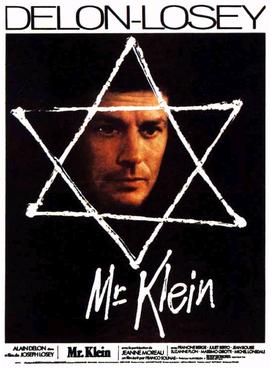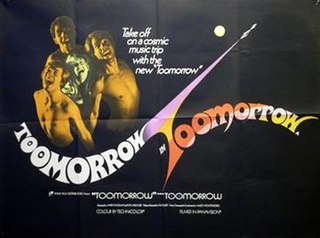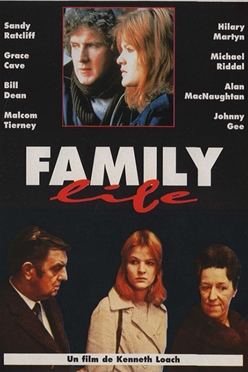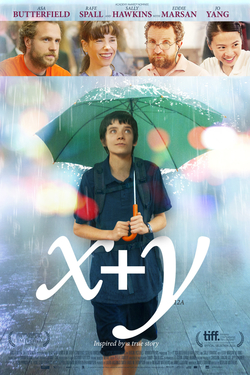
A hippie, also spelled hippy, especially in British English, is someone associated with the counterculture of the 1960s, originally a youth movement that began in the United States during or around 1964 and spread to different countries around the world. The word hippie came from hipster and was used to describe beatniks who moved into New York City's Greenwich Village, San Francisco's Haight-Ashbury district, and Chicago's Old Town community. The term hippie was used in print by San Francisco writer Michael Fallon, helping popularize use of the term in the media, although the tag was seen elsewhere earlier.

The Isle of Wight Festival 1970 was a music festival held between 26 and 31 August 1970 at Afton Down, an area on the western side of the Isle of Wight in England. It was the last of three consecutive music festivals to take place on the island between 1968 and 1970 and often acknowledged as the largest musical event of its time, with a larger attendance than Woodstock. Although estimates vary, Guinness World Records estimated 600,000 to 700,000 people attended. It was organised and promoted by local brothers, Ron and Ray Foulk through their company Fiery Creations Ltd and their brother Bill Foulk. Ron Smith was site manager and Rikki Farr acted as compere.

Dynamite Chicken is a 1971 American comedy film. Described in its opening credits as "an electronic magazine of American pop culture," it presents a series of interviews, stand-up comedy, countercultural sketches, documentary segments, and agitprop relating to the peace movement, based around a stream of consciousness free form format.

"Cathy Come Home" is a 1966 BBC television play about homelessness. It was written by Jeremy Sandford, produced by Tony Garnett and directed by Ken Loach. A 1998 Radio Times readers' poll voted it the "best single television drama" and a 2000 industry poll rated it as the second-best British television programme ever made. Filmed in a gritty, realistic drama documentary style, it was first broadcast on 16 November 1966 on BBC1. The play was shown in the BBC's The Wednesday Play anthology strand, which often tackled social issues.

Performance is a 1970 British crime drama film directed by Donald Cammell and Nicolas Roeg, written by Cammell and filmed by Roeg. The film stars James Fox as a violent and ambitious London gangster who, after killing an old friend, goes into hiding at the home of a reclusive rock star.

Monsieur Klein is a 1976 mystery drama film directed by Joseph Losey, produced by and starring Alain Delon in the title role. Set in Vichy France, the Kafkaesque narrative follows an apparently Gentile Parisian art dealer who is seemingly mistaken for a Jewish man of the same name and targeted in the Holocaust, unable to prove his identity.

International Velvet is a 1978 American film and a sequel to the 1944 picture National Velvet starring Tatum O'Neal, Christopher Plummer, Anthony Hopkins and Nanette Newman, and directed by Bryan Forbes. The film received mixed reviews. International Velvet was partly filmed at Birmingham University, England.

A Lizard in a Woman's Skin is a 1971 giallo film directed by Lucio Fulci and produced by Edmondo Amati and Robert Dorfmann. It stars Florinda Bolkan, Stanley Baker, Jean Sorel, Leo Genn, and Anita Strindberg. The film was an Italian-Spanish-French co-production.
The hippie subculture began its development as a youth movement in the United States during the early 1960s and then developed around the world.

Groupie Girl is a 1970 British drama film directed by Derek Ford and starring Esme Johns, Donald Sumpter and the band Opal Butterfly. The film was written by Ford and former groupie Suzanne Mercer. The film was released in America in December 1970 by American International Pictures as I am a Groupie and in France in 1973, with additional sex scenes, as Les demi-sels de la perversion. It was later re-released in France in 1974 as Les affamées du mâle this time with hardcore inserts credited to "Derek Fred".

Toomorrow is a 1970 British science fiction musical film directed by Val Guest and starring Olivia Newton-John. Guest said "That was Harry Saltzman’s great idea. That was the first space musical."

David John Harman, known professionally as Dave Dee, was an English singer-songwriter, musician, A&R manager, fundraiser and businessman. He was the frontman for the 1960s pop band Dave Dee, Dozy, Beaky, Mick & Tich.
Bill 'Ubi' Dwyer or William Ubique Dwyer was an anarchist activist in New Zealand, Australia, England and his native Ireland and is best known as the originator and principal organiser of the Windsor Free Festival.

Permissive is a 1970 British exploitation drama film directed by Lindsay Shonteff and starring Maggie Stride, Gay Singleton and Gilbert Wynne. It was written by Jeremy Craig Dryden, and depicts a young girl's progress through the rock music groupie subculture of the time.

Family Life is a 1971 British drama film directed by Ken Loach from a screenplay by David Mercer. It is a remake of In Two Minds, an episode of the BBC's Wednesday Play series first transmitted by the BBC in March 1967, which was also written by Mercer and directed by Loach.

X+Y, released in the US as A Brilliant Young Mind, is a 2014 British drama film directed by Morgan Matthews and starring Asa Butterfield, Rafe Spall and Sally Hawkins.

Kenneth Charles Loach is a British film director and screenwriter. His socially critical directing style and socialism are evident in his film treatment of social issues such as poverty, homelessness, and labour rights.
Suzanne Mercer was a British screenwriter who wrote a number of films for Stanley A. Long. She is best known for writing Groupie Girl (1970), based on her own personal experience.

Naughty, also known as Naughty! A Report on Pornography and Erotica, is a 1971 British dramatised documentary film directed by Stanley Long and written by Suzanne Mercer. Long said although the movie was sold as a sex film it was "a fairly serious film" which "had some purpose". Mercer called it "a serious sociological look at pornography and erotica." It mixes interviews with archived footage and re-enactments, and was screened at the Wet Dream Film Festival in Amsterdam in 1971. The same team later made a similar movie, On the Game (1974).

On the Game is a 1974 British comdedy drama film directed by Stanley Long and starring Charles Gray. It was written by Suzanne Mercer, who spent two years researching it. The film is a dramatised comedy documentary about prostitution through the ages.

















